A nonwoven fabric is a fabric-like material created from long fibers (continuous long) and staple fibers (short) that have been mechanically, chemically, thermally, or solvent-bonded together. In the textile production sector, the phrase is used to describe textiles like felt that are neither knitted nor woven.
These textiles are widely used all over the world and in Iran, and many producers are in the nonwoven textile market. In this article, while introducing nonwoven textiles and their types, we do a market analysis for clearing the situation of nonwoven textiles in Iran. So be with us till the end.
Nonwoven Fabrics Sector and Global Market
The nonwoven fabric market size was valued at USD 22.62 billion in 2016 and is expected to reach USD 35 billion by the end of 2022. This market is expected to grow at a compound annual growth rate (CAGR) of 7.5% during the said period. The base year considered for the study is 2016 and the market size is projected from 2017 to 2022.
Nonwoven fabrics industry in Iran and who runs it
In the nonwoven textile industry, Iranians have strong roots, and the first nonwoven textile products in the world, namely felt, have thousands of years of background in Iran. When we talk about the carpet industry or the beautiful and wonderful art of enamelling (minakari art), the whole world recognizes Iran as the original place of these arts and considers it as an original industry in Iran.
when it comes to Iranian carpets, customers expect to have the most original, high-quality and valuable products. So about the nonwoven textiles industry in Iran, something like this should be in the minds and the industry owners of this field should show that they have something to say.
If you rely on these originalities, you can provide a product with a very high added value, both in terms of technology and in terms of product authenticity. But currently, the nonwoven textile industry does not have such a position.

In the last three years (since 2019), despite the dreaded corona disease, aka the Chinese plague, and the increasing need of society for all kinds of face masks on the one hand, and the great need for hospital textiles due to the increase of corona patients on the other hand, the eyes are much more than before to The direction of the nonwoven textile industry has turned and this area of textile has received much more attention than before.
According to the statistics of the Iranian Textile Association, the import of nonwoven fabrics to the country for the production of masks and hospital gowns reached nearly 3000 tons in 2021 and more than 12 million dollars of foreign currency were taken out of the country.
While the above textiles could be produced locally if the textile production units in the country are able to produce them, and even during the corona era and the need of other countries for nonwoven textiles, they could be exported and furthermore enter currency inside.
Although in 2020, the situation changed with the spread of the Coronavirus and it affected the textile industry in some products such as Spunband and Meltblown fabrics, and the six-month and one-year sales queues for buying products from companies that sell and manufacture machinery in this The groundwork has been created, in Iran, companies have made good efforts, especially in the Meltblown sector, and some of them have also become commercial, but mainly the market is in the hands of a few companies that have already invested in machinery, and a few companies have Installed and launched new lines in the same year.
Of course, the quality and uniformity of their products do not reach European countries’ products, but they have a big price difference and they were very economical in the short term.
Unfortunately, compared to other countries such as Turkey, Saudi Arabia, India, China, etc., not much investment has been made in the field of nonwoven textiles and technical textiles in Iran.
- Also Read: INDA Releases 2022 Nonwovens Supply Report
It is interesting to know that in terms of industrial and technical advantages in the production of nonwoven textiles, compared to a country like Turkey, Iran has far better conditions in terms of access to raw materials, industrial production infrastructure such as labor, electricity, etc., and also Turkey to produce fibers Polyester needs to import materials (even one of the export destinations of Iran’s polymeric materials and polyester fibers is Turkey), but with all of these, Turkey’s investment in nonwoven textile production is several times that of Iran.
And this country has become one of the significant centers of nonwoven textile production in the region. According to the official statistics of Turkey in the field of nonwoven textile production, the production capacity doubled between 2009 and 2014, and between 2014 and 2019, this production volume recorded a 100% growth again. So, the growth rate of the nonwoven textile industry in Turkey is several times that of Iran.
Even today, we are witnessing a growing trend in the region with a country like Saudi Arabia, which, except for the production of petrochemical products, does not have a special advantage for the production of nonwoven textiles and other petrochemical-based textiles, but the production of this country is very high. And the total nonwoven textiles produced by Saudi Arabia with about a third of Iran’s population is equivalent to all that is produced in the vast country of Iran.
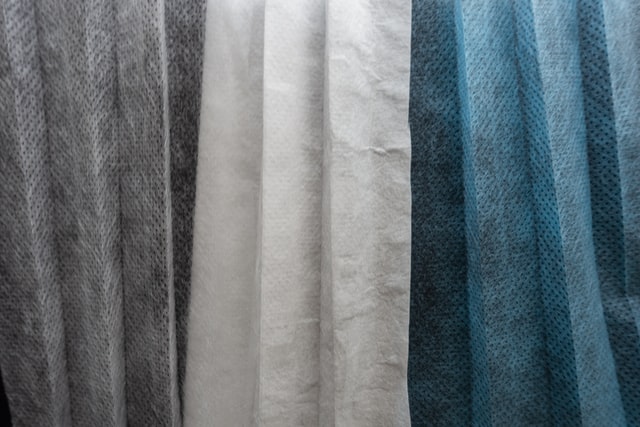
The nonwoven textile market is a growing and profitable market in Iran, and unfortunately, in our country, the wrong policies of the past years, such as the removal of nonwoven textile production from the list of priorities of the Ministry of Industry, Mine and Trade in 2000s, and sanctions restrictions caused problems in investment.
The volume of the production capacity of this large part of textile did not achieve the necessary growth even without taking into account the Corona epidemic, which increased the need for nonwoven textiles in the country.
Certainly and necessarily, the nonwoven textile market will feel the damage caused by the inappropriate development of this industry more in the future due to new needs and lifestyle changes under the influence of the coronavirus and its consequences and after passing through it.
- Also Read: Sustainable solutions at nonwovens: Reducing gas consumption at drying of spunlace production
Existing Potentials in the Field of Nonwoven Textiles
The potential of this sector alone and independently from other textile sectors is very high. A very important point is that in this industry, the final product can be reached in the third step of production. The first step is the refineries, the second step is petrochemical and the third step is the nonwoven textile industry.
The percentage of natural nano-wool fabrics in which wool and cotton are used is much less than synthetic nano-wool, and if the government makes efforts in this field, a great potential of added value in this area will be realized. This means that instead of exporting petrochemical products with great difficulties in monetizing its income, if the government focuses more on these next steps of production, for example, nonwoven textiles, the economic justification will be much higher.
Of course, providing the basic needs of the country is the first priority, but the point is that exporting to global markets is one of the best ways to produce standard and high-quality products inside, training and improving the quality level of producers, which will ultimately affect people’s health.
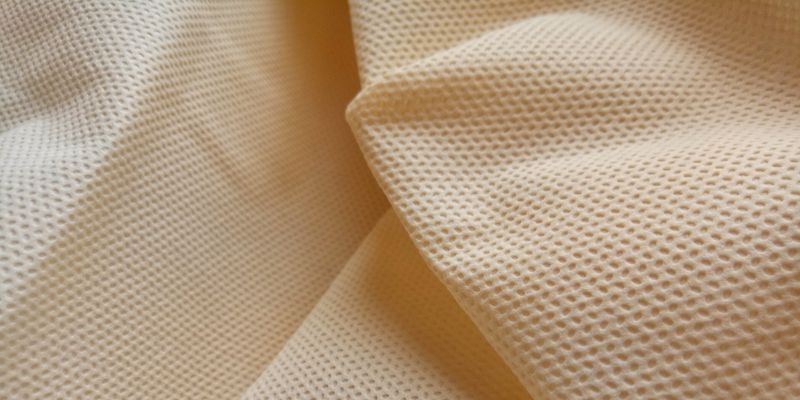
Nonwoven Fabric Manufacturers in Iran
According to the statistics of the Iranian Textile Association, the manufacturers of nonwoven fabrics in Iran and the scope of work of each are as follows:
Behbaft Plast
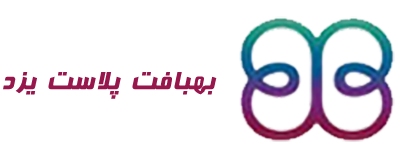
www.behbaftplast.ov2.com/?avia_forced_reroute=1
Phone: 035-8-38413767
Mobile: 09134558030
Fax: 035-37285901
Email: [email protected]
Behbaft Plast Manufacturing Company of Yazd, registered under number 13991, specializes in the production of spunbond non-woven textiles. Equipped with three production lines offering widths of 160 and 320 in various colors and weights, the company conducts finishing operations such as lamination, paper printing, and metallization for sanitary cardboard.
Additionally, they provide coating and laminated spunbond for medical purposes, along with hand-held baking bag (ultrasonic) services and cutting services in longitudinal and transverse sections. Established and operational since 2013 in the Yazd province, Behbaft Plast Company utilizes experienced manpower and advanced technology to ensure the production aligns with international standards, guaranteeing customer satisfaction. Apart from catering to domestic markets, the company exports its products to European and Asian countries.
Yazd Behpod
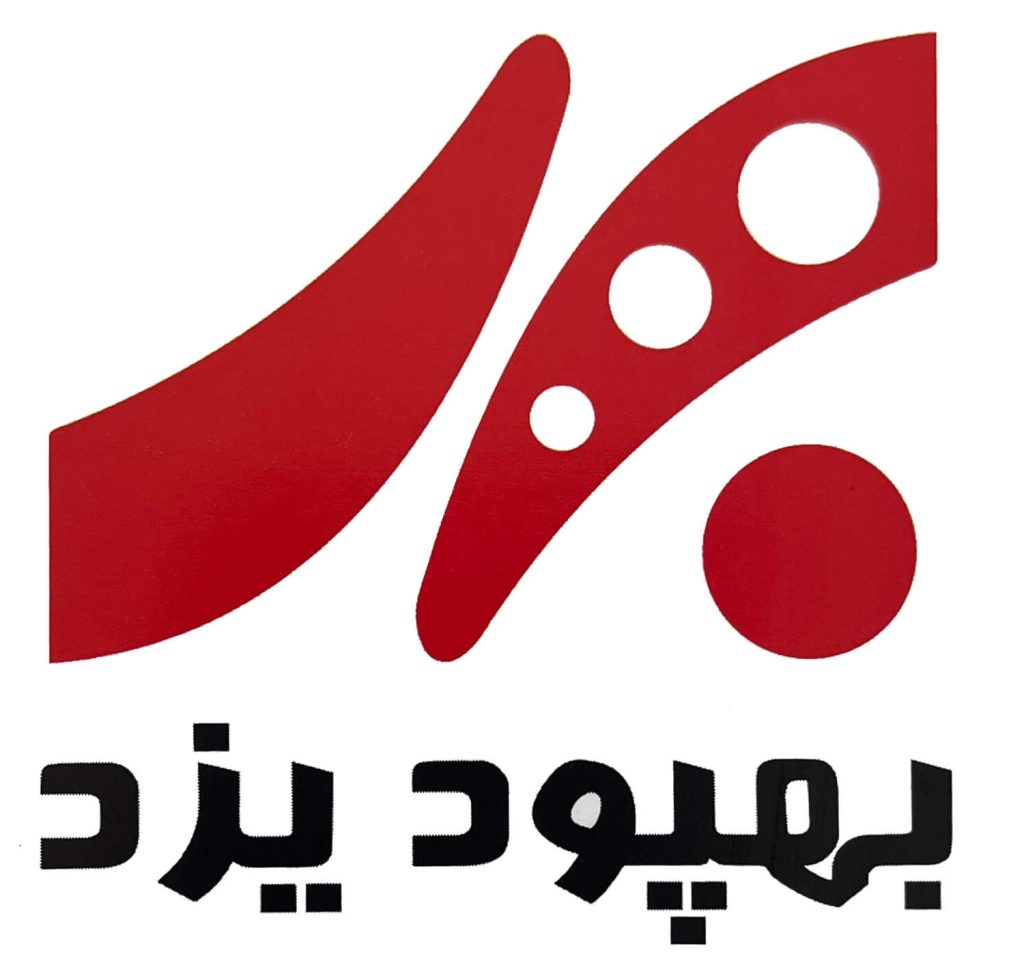
https://www.behpood.com/
Yazd Behpod factories commenced operations in 2013, focusing on the production of spunbond and melt blown-woven fabrics. Utilizing state-of-the-art technology globally and employing experienced professionals, this complex now produces 35 tons of spunbond and 10 tons of melt-blown fabrics daily, providing employment for over 150 people.
Behpod Yazd, with over eighteen years of experience in non-woven textile production and cutting-edge production lines, boasts a well-equipped laboratory. The company is committed to meeting international and domestic standards, consistently enhancing product quality, and continually improving processes to meet customer needs.
The primary vision of this collection, positioned as the largest producer of non-woven textiles, is to expand the Yazd Behpod brand in global markets and increase its share in both domestic and international markets. The company serves various industries, including the hygiene, medical, packaging, cover, agriculture, filtration, environmental, and other sectors.
Bibaft
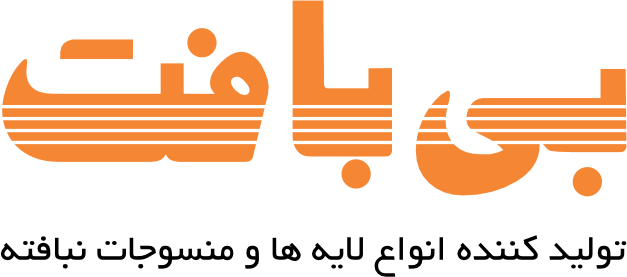
www.bibaft.com
Phone: 26232934 – 26231299 – 26232278 – 26232093
Fax: 02188720516
Email: [email protected]
Bibaft company is one of the first specialized units for the production of non-woven layers in Iran, which was established in 1373, this factory is capable of producing non-woven layers through mechanical (needling), thermal (thermobonding), hot air thermal bonding) is the chemical (foam bonding, spray bonding, Fullard), hydrodynamic (spun liss – involving fibres by water jet) and spinning melt (Melt Blown).
This company has 10 production lines and 8 finishing lines that are capable of producing layers from 12 grams to 1000 grams per square meter in various widths. Possessing technical knowledge, modern technology, diversity of production lines, along with strong and continuous communication with customers, has made Bibaft company able to supply customers’ orders with superior quality and reasonable prices.
The long-term experience and brilliant history of this group has made it add value to its products in addition to quality, and it has made a great contribution to the country’s production chain, and it has always been trying to dynamically and systematically develop and expand this industry. play a role. Today, innovation in non-woven products is expanding rapidly, and the demand for this type of product has increased and the unlimited use of these products has caused them to be used in various industries..
SADRA BI BAFT
![]()
www.sadra3940.ir/en
Phone: 0098-9129353940 – 0098-9111753940
Sale: 0098-9129373940
Iran Cover was established in 2005 to produce military uniforms and hospital-industrial gowns, and significant successes were achieved, including the production of naval bottles of the Islamic Republic of Iran Army, uniforms of various factories such as Tobacco Company, Kesht Co. And Sanat, Iran Dairy Industries Joint Stock Company (Pegah) and mentioned dozens of other cases.
Since 2006, Iran Cover designers, in order to optimize production and consumption by designing up-to-date design of nonwoven industrial-advertising covers, which was done for the first time in Iran, has undergone a dramatic change in the advertising industry.
It has the best and lowest price. With the passage of time and the maturity of this fledgling industry, in order to keep customers and owners of industries related to the advertising industry, which includes almost all craftsmen and advertising centers, Iran Cover is eager to move towards innovation and inherent creativity that are an integral part.
Has started from this collection and has offered unique products to customers. Since 1390, this collection has been updated with ultrasonic technology in the field of producing different bags with high production volume and exemplary quality, and has introduced different and diverse products. At present, Iran Cover is the largest manufacturer with a daily production of 50,000 handbags and the largest distributor to all guilds with more than 500 regular customers.
Harir Baft Amir
www.en.harirbaftamir.com
Phone: 0098-21-79425
Email: [email protected]
Harir Baft Amir Industrial Group takes pride in making a significant contribution to the market for this product in Iran and neighbouring countries. After years of producing spunbond fabric, we have earned a reputation for delivering desired quality and promptly meeting customers’ needs.
Our manufacturing unit offers a wide range of multi-layered non-woven textiles, including melt blown, in various colors, dimensions, and grammages. These products find applications in diverse industries such as medical and health services, packaging, agriculture, garments, automotive, road construction, and more.
Sepehr Baft Khavaremianeh
 www.sepehrbaft.com/?lang=en
www.sepehrbaft.com/?lang=en
Email: [email protected]
Phone: 0098-2188548620
Sepehr Baft Khavaremianeh Company started its activity in 1390 in Sepehr Nazarabad industrial town in the field of production of “non-woven geotextile” or NOW WOVEN with the aim of domestic and foreign markets.
Namad Baft Fars
 www.namadbaft.com
www.namadbaft.com
Mobile number: 267 30 20 0917
Phone: 071-32622634
Email: [email protected]/[email protected]
Namad Baft Fars Company, has more than 10 years of experience in the field of geosynthetic products and non-woven fabrics, together with Sefid Baft Khorasan Company, with more than 20 years of experience in the construction and production of textile machines, launched a new geotextile and synthetic felt production line under the brand name ” Namad Baft” in the south of Iran.
Our products using polyester and polypropylene fibers, prepared from the best fibers produced in the country, in addition to meeting domestic needs, are focused on meeting the needs of target markets in neighboring countries such as Turkey, Turkmenistan, Iraq and Afghanistan.
NotashNab Gostar Paya
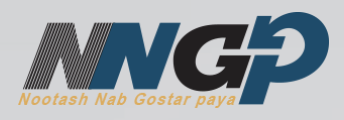
www.nngpco.com/en/
Phone: +98 86 44277203
Mobile: +98 9183657175
Email [email protected]
Today, in many countries of the world, polyester fibers are produced and processed with different breads, the important features of which are softness, lightness, hygiene, durability, anti-moisture, and so on.
Polyester fibers are used in various industries such as the production of tent fabrics, curtains, nets, shirts, felt, layers, etc. and cover a major part of the needs of society.
Therefore, Notash Nab Gostar Paya Company has started its activity since 1396 in the field of production of various types of needle layers, car layers and felt, which has many applications in the automotive industry, and polyester, and is ready to serve dear customers.
PARS TEXON
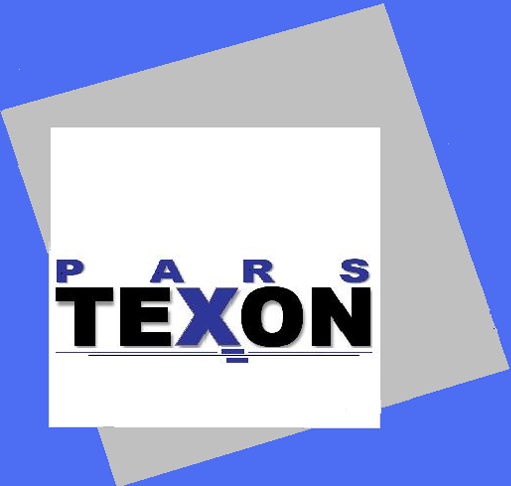
www.parstexon.com/contact.php#
Phone: +98 (21) 4405 1471/+98 (21) 4405 1571
Fax: +98 (21) 4405 1562
Email: [email protected]/[email protected]
PARS TEXON Industrial Engineering Group is a subsidiary of PARS TEXON Corporation with decades of experience in the fields of industrial engineering and international trade.
The primary activities of PARS TEXON are technical textiles, protective equipment, and filtration with special focus on our international procurement capabilities.
Our group main concern is to provide the highest protection and quality of lift for our clients through our extensive international resources, expert management and staff by offering first-class services. PARS TEXON’s resources are comprised of companies with highest trading reputation and product quality which is second to none. PARS TEXON guarantees our client with not only supplying the highest quality, but also first-rate after-market services so our clients can count on long-term cooperation with us.
Fixed Lai Rabat Manufacturing Company
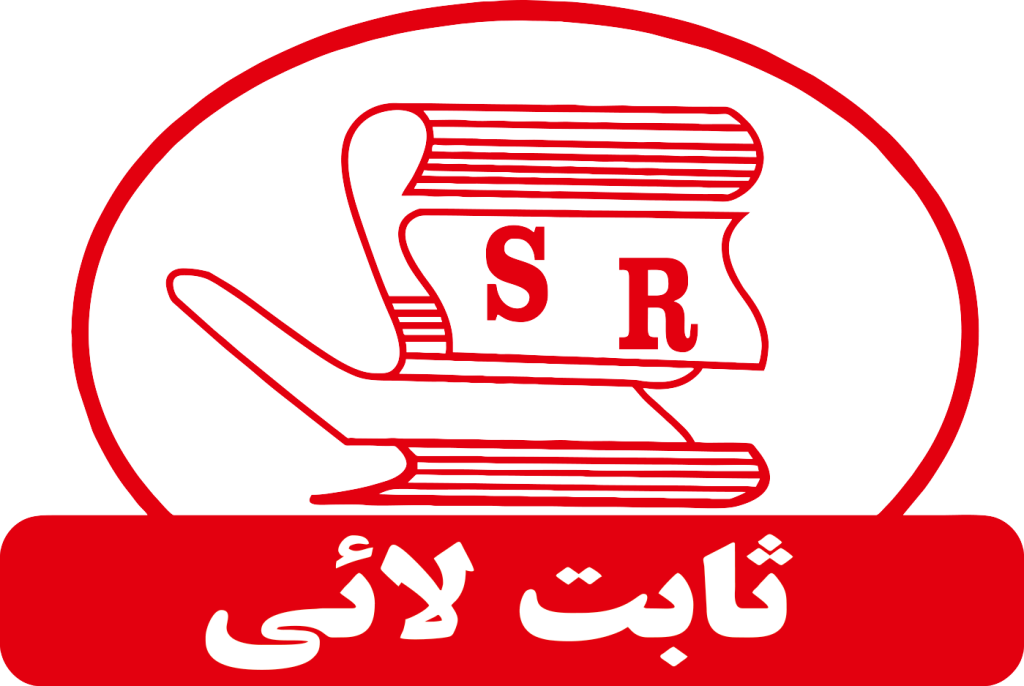
www.sabetlaee.com
Phone: 021-56584230 – 021-56585788
Fax: 021-56585816
This industrial group started its work in 1368 with the production of polyester layers with a weight of 50 to 2000 grams per square meter, during the last few years, Tabet Lai Rabat Industrial Group has been able to be one of the best producers of all types of layers. polyester products in the country, also to take a large share of the market for the clothing and industries sector.
Considering that the raw materials of this company are supplied from foreign countries, the managers of this company decided to buy modern machines in order to meet their basic needs and prevent excessive imports from Asian and European countries, as well as to improve the quality of manufactured products. They set up their second unit named Nagin Polyester Eshthard Manufacturing and Industrial Company in 1390 to once again make their country proud.
Bebaft Gostar Jahan
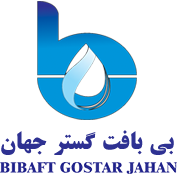
www.bibaftjahan.com/en
Phone: +9802144046726-9
Fax: +9802144003660
Email: [email protected]
Bebaft Gostar Jahan Company was established in 2013 in order to produce all kinds of spunlace and non-woven layers, all kinds of non-woven fabrics in different weights for sanitary and non-sanitary uses. The production line of Bebaft Gostar Jahan company is of Hydro-entanglement type, which, due to the special features of its machines, has the possibility of producing different types of spanless with special advantages and different applications.
Pars Dorsa Woven
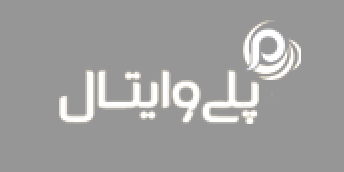
www.polyvitalfiber.com/index.php
Phone:009-8644433191
Email: [email protected]
Pars Dorsa Woven Fiber Company in 2017 in Central Province located in Delijan Industrial Town with the aim of producing all types of short and long synthetic fibers (PSF & Filament) one-component and two-component in order to develop products and market, with thinking and approach of innovation and technology and Finally, gaining a suitable position in the domestic and foreign markets entered this industry.
The project of this company was completed in a land area of 20,000 square meters and with an infrastructure of 7,000 square meters, which includes production, administrative, service and utility buildings, with a foreign currency investment of 2 million euros and an amount of 450 billion Rials in fixed investment. In the first phase, with a capacity of 13,600 tons per year, it will be put into operation in 2021 for the production of fibers for the textile industry, and it will supply its products to the target market under the POLY VITAL brand with the best quality.
korkbabol
www.korkbabol.com
Email: [email protected]
Phone: 011-32073071-09117896373- 09113135122
nonwoven fabrics, accordion layers, thermofused, fixed sleep goods
• Naghshe Toranj Zarrin: nonwoven fabric and spunbond
• Novin Bibafte Ivaz: production of the nonwoven layer
• Kavian Bibafte Mashhad: production of all kinds of thermofused spray layers, felt layers (rhombus) and heat treated fibers.
• Mobin Golsare Spadana: production of woven layers, nonwoven fabrics (nonwoven), accordion, thermofuse
• Rose Narmin Tamin: nonwoven fabric
…
What Is a Nonwoven Fabric?
Nonwoven fabrics have a structured internal structure while not having interwoven strands. These fabrics are created by bundling together threads and combining them with heat, chemicals, or pressure to create a cohesive substance that resembles fabric. Unlike traditional materials like cotton, linen, wool, and silk, which need weaving or knitting, nonwoven fabrics don’t. One of the most popular types of the nonwoven fabric is felt. A dense textile is created by churning fibers in a solution until they interlock.
The way the fibers are glued together primarily distinguishes the various types of nonwoven fabric:
• Fibers are chemically bound together using glue-like substances through chemical bonding,
• Mechanical bonding (fiber entanglement)
• Thermal bonding (where low-melt fibers are used and heat is used to melt the fiber to each other).
Apart from being labeled as nonwoven, the resulting fabrics don’t share much in common. To adjust fabric qualities or reverse engineer fabrics depending on functional requirements, nonwoven components such as fiber selection, web formation, bonding, and finishing procedures can be changed.
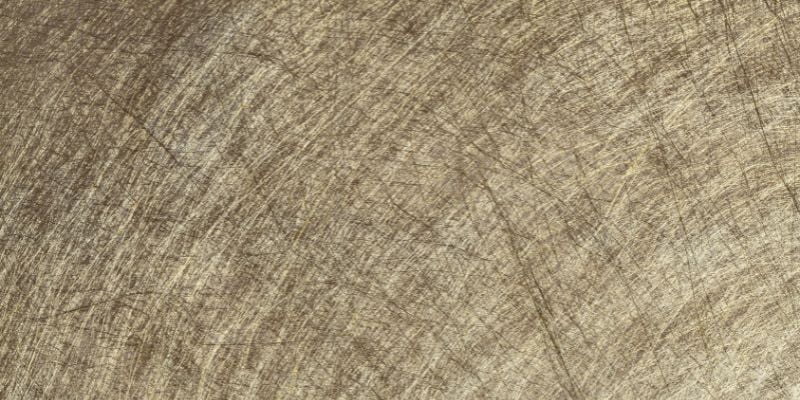
The first nonwoven fabrics were utilized in the manufacturing industry in the 1940s, while some nonwoven materials can be found in nature, such as spider webs, silkworm cocoons, and bird nests.
Compared to woven or knit materials, nonwoven fabrics are thinner and less durable. Nonwoven materials are not appropriate for the creation of lasting garments due to their poor memory and launderability as a material. The majority of nonwoven fabrics are utilized in one-time applications. However, given their adaptability and low production costs, nonwoven materials also have benefits.
Numerous sectors utilize nonwoven materials extensively. Nonwoven fabrics are used in the medical industry to make isolation gowns, surgical scrubs, and medical packaging. They are utilized as carpet backing in the carpeting business. Their qualities have also been extensively applied in the agriculture, building, and automobile industries.
Nonwoven fabric types
According to various manufacturing procedures, there are main types of nonwoven fabrics:
Spunlace Nonwovens
This type of fabric is nonwoven and is created by directly incorporating polymer slices, short fibers, or filaments into a network of threads using mechanical or air pressure, spunlace, acupuncture, or hot-rolled reinforcement.
It is well known for its numerous applications in nonwoven fabrics for facial masks, medical devices, wet wipes, filters, and other items
Heat-bonded Nonwovens
The main steps in producing this kind of nonwoven fabric are to incorporate fibrous or sticky reinforcement material into the fiber network and then reinforce the network into cloth using heat and then cold.
Pulp Air-laid Nonwovens
Dustless paper or dry paper nonwovens are another name for air-laid nonwovens. It opens the wood pulp fiberboard into a single fiber state using air-laid technology, causes the fiber to clump together on the net curtain using the airflow method, and finally consolidates the fiber web into fabric.
Wet-laid nonwovens
Wet nonwoven fabric is produced by splitting the fibrous raw material into individual fibers in an aqueous medium, mixing different fiber raw materials to create a fibrous suspension slurry, and then transporting the suspended slurry to a mesh-forming mechanism where the fibers are laid in a wet state to create a cloth.
Spunbond Nonwovens
Extrude and stretch the polymer to produce a continuous filament, lay the filament into web, and then process the web into nonwoven fabric using their own bonding, thermal bonding, chemical bonding, or mechanical reinforcement techniques. This is how spunbond-type nonwoven fabric is processed.
Meltblown Nonwovens
Extruding melted polymer fiber through a linear die with hundreds of tiny holes creates long, thin fibers that are stretched and cooled by hot air as they exit the linear die. The resulting web is then blasted over a collector screen to create finely filtered, self-bond nonwovens.
Acupuncture Nonwoven
Dry nonwoven fabric comes in the form of acupuncture nonwoven. By puncturing the fluffy fiber with a needle, cloth is strengthened.
Conclusion
Today, many industries in the country, such as automobile manufacturing, construction, road construction, dam construction, agriculture, healthcare, etc., require the use of technical and specialized services of textile industry activists to meet their needs.
It will facilitate and accelerate other industries. Production and investment in the field of technical textiles and nonwoven textiles is a way that can guarantee the future of the textile industry, and the added value created by these areas for the textile industry will be much more than the usual profits.
In addition, advanced industrial and scientific countries mainly focus on these areas, which, considering the passionate youth and the high volume of active university centers, orientation in the mentioned areas will be very effective and open the way.





















Hello
Dear sir,
Good day
I’m Abdurahman from Kassar Company
we want to ask about nonwoven fabric 70g 160cm
please inform us about the price we need every two or three months about 2 container
we import from china but we are looking for better quality and better price
we are waiting your reply
many thanks
Abd
00963966303060
Please Contact me on my mobile number+919204349240 by Call or what’saap for Best Quality Non Woven Fabric from India.
We are leading manufacturers of Non woven felt and fabric from 100 GSM to 1000GSN